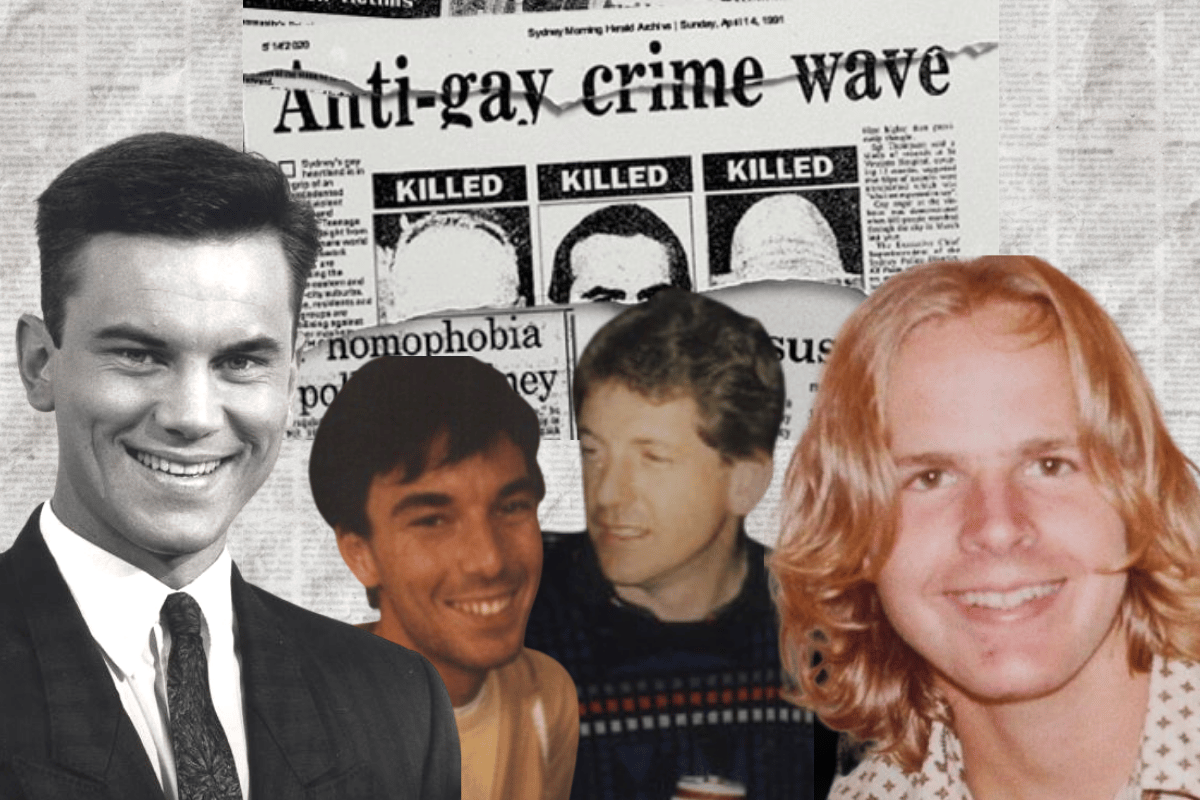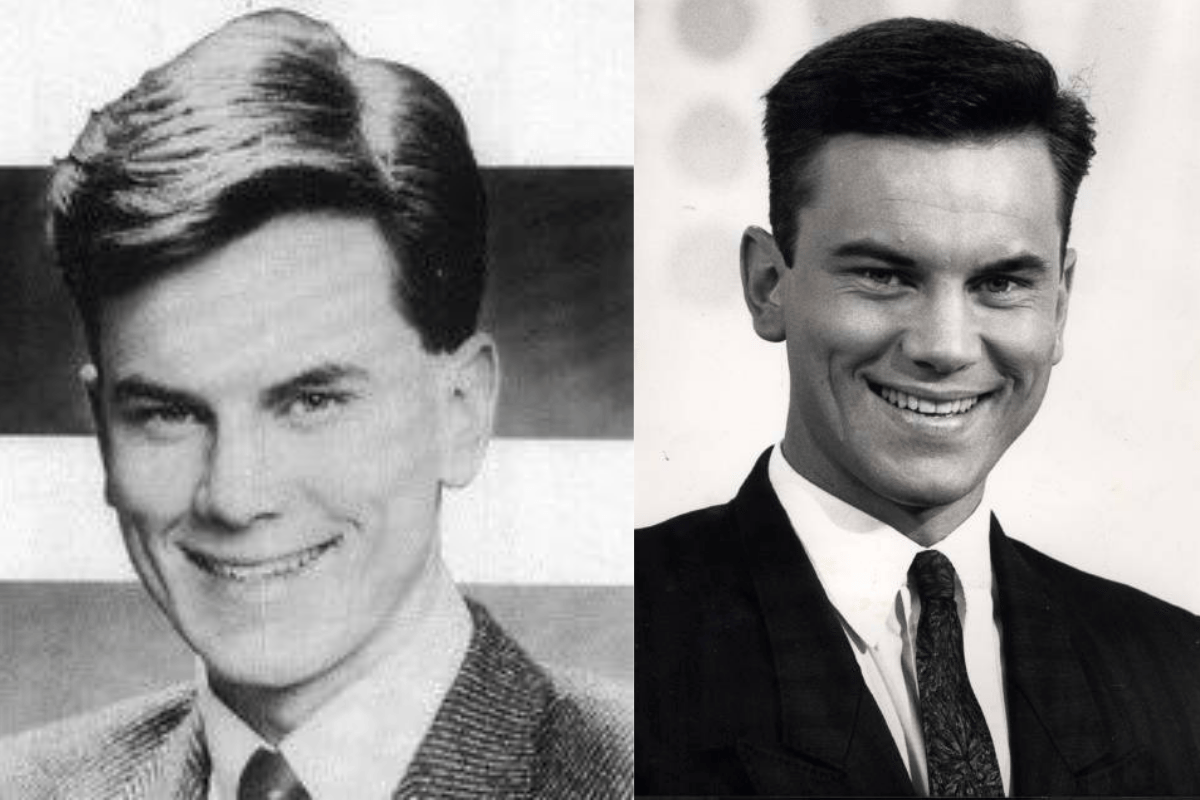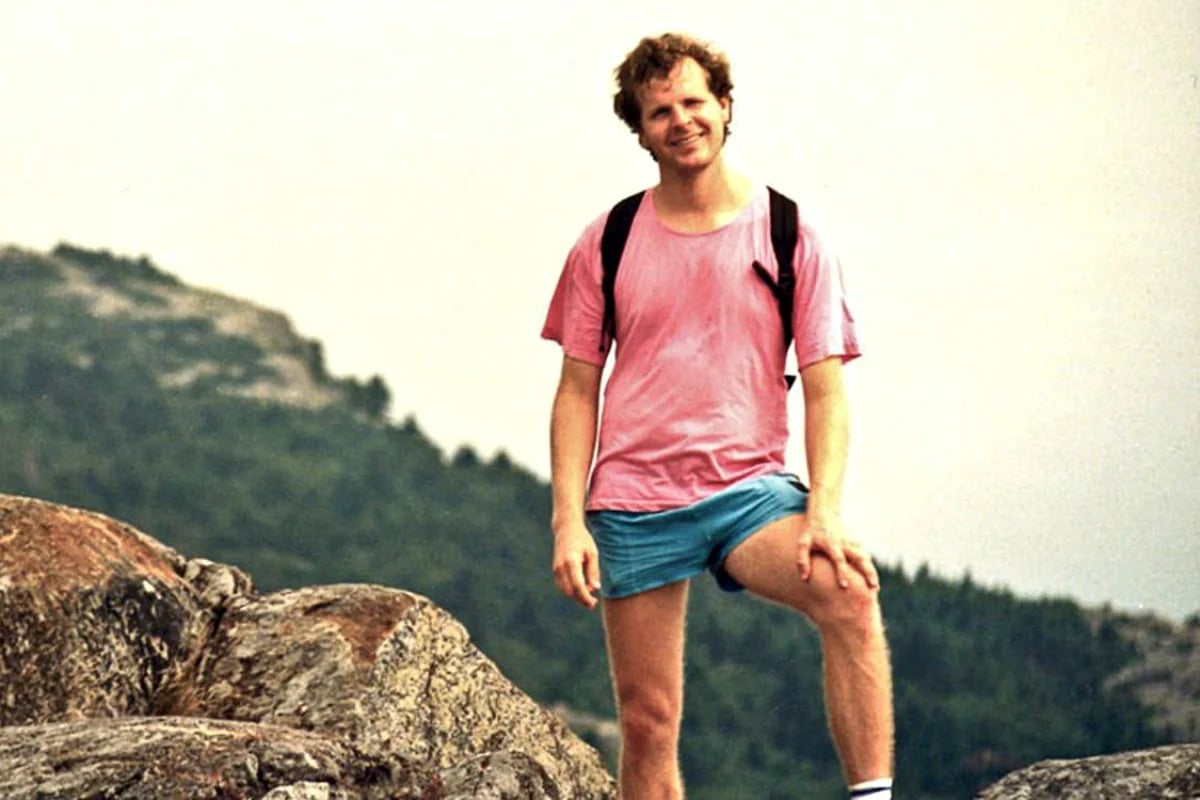
Between 1970 and 2010, there were a series of brutal crimes committed in Sydney against gay and transgender people.
Many of these hate crimes resulted in murder.
This week, a commission of inquiry into these hate crimes was announced in NSW, which will investigate crimes against 88 men. Some 23 of these cases remain unsolved.
In a statement, NSW Premier Dominic Perrottet said: "These unsolved deaths have left loving families without answers for too long. This inquiry will work to close a dark chapter of our state's history that has left an indelible mark."
It is also hoped the inquiry will lead to new evidence being uncovered or bring previously unreported crimes to the forefront. But what it will also do is formally acknowledge those who were victims of brutal hate attacks and tell the stories of the humans at the centre of each tragedy.
Watch: Mamamia's True Crime Conversations podcast trailer. Post continues below.
One of the men who lost their life is Ross Warren, who disappeared in July 1989.
He was a 24-year-old WIN Television presenter who lived in Wollongong, and every second Friday he would travel to Sydney to spend the weekend with his friends. But on that July weekend, he vanished and hasn't been seen since.


